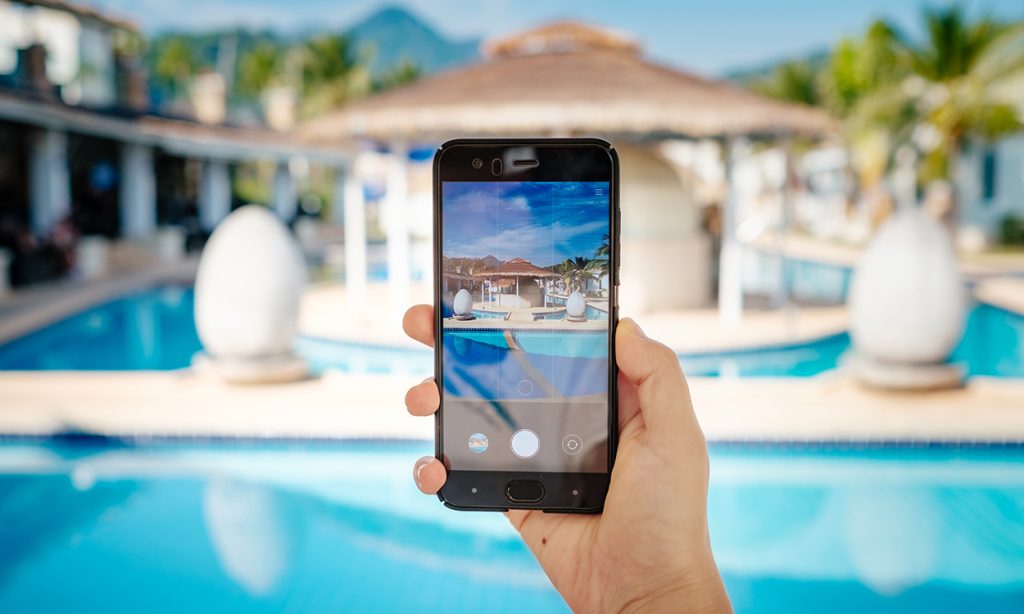Websites that are mobile-friendly attract more sales and leads due to their user-friendly design. With a mobile-friendly website, people can easily access your business from their phones, tablets, or computers without any inconvenience. Investing in this improved accessibility early on is crucial for establishing long-term trust and retaining clients.
As the number of visitors to your website grows, it’s essential to ensure a positive experience for all users, regardless of the device they use. If your site is difficult to navigate on mobile devices or has slow loading times, visitors may turn to a competitor’s site instead. A mobile-friendly website offers several benefits, including, enhanced visibility in search results, increased customer satisfaction and higher lead generation.
Enhancing your travel website for mobile users means ensuring it’s effortless to navigate and use on smartphones and tablets. This includes factors like ensuring text readability, strategically placing buttons and images, and ensuring clear clickable links. By prioritising mobile-friendliness, you can provide a superior user experience for visitors accessing your site on the go from their mobile devices.
Mobile users, in particular, have limited patience when it comes to browsing websites. Research indicates that mobile users are likely to exit sites that take longer than three seconds to load. If a website is not optimised for smartphones and tablets, it can result in slower browsing experiences, potentially frustrating customers to the point where they may not return. Data on the frequency of mobile bookings underscores this trend, with smartphones accounting for 41% of bookings made in 2021.
With a responsive website, sharing and linking your travel agency information becomes effortless—all you need is the URL. Google and other search engines crawl through your content, potentially displaying it in search results and helping users discover your offerings. A responsive design ensures usability across various devices, be it a PC, smartphone, or tablet.
Best Practices for Mobile Optimisation

Ensure Consistency Across Devices:
Maintain identical content on both desktop and mobile versions to prevent cloaking and duplication issues. Using responsive design ensures uniformity across various devices and platforms by employing style sheets with media queries.
Focus on “Above the Fold” Content:
Despite the endless scrolling capability on mobile devices, prioritise placing important information or headlines above the fold to capture users’ attention immediately. This encourages further exploration as users are more likely to engage with readily visible content.
Utilise Compelling Titles and Formatting:
Leverage the psychological factors that drive user engagement by creating enticing titles and formatting content effectively. Interesting titles and visually appealing formatting enhance the likelihood of users exploring your website further, therefore increasing engagement.
Incorporate a User-Friendly Site Search:
Include a prominently displayed site search bar on your mobile website to aid quick and efficient navigation for users looking for specific information.
Implement Precise Filtering Options:
Enhance user experience by providing precise filtering options that allow users to refine search results according to their preferences. Ensure mobile-friendly filter buttons are easily accessible, displaying the number of available options to help users narrow down their choices effectively.
Prioritising User Experience
Mobile SEO (Search Engine Optimisation) is crucial for businesses operating online, with mobile devices accounting for a significant portion of page traffic. using SEO enhances online marketing efforts, enabling businesses to reach potential customers effectively and increase conversion rates by providing a user-friendly booking process.
A professional and user-friendly website is essential for travel agencies to showcase their products and services effectively to customers. Clear categories and intuitive navigation helps users in quickly finding the information they need, streamlining the booking process and enhancing their overall experience on the website.
Optimising Your Travel Website for Mobile Users

In conclusion, prioritising mobile user experience is paramount for travel agencies aiming to enhance their online presence and drive business growth. With an increasing number of users accessing websites via mobile devices, ensuring a mobile-friendly website design and optimised SEO is crucial. By providing a user-friendly experience across all devices, travel agencies can cater to the evolving needs of modern travellers. From easy navigation to quick access to information and booking options, a mobile-friendly approach enables users to find what they need effortlessly, resulting in enhanced user satisfaction and engagement. By embracing mobile-friendly practices, travel agencies can position themselves as leaders in the industry, delivering convenient and personalised experiences to their customers, whether through their mobile site or dedicated mobile app.



